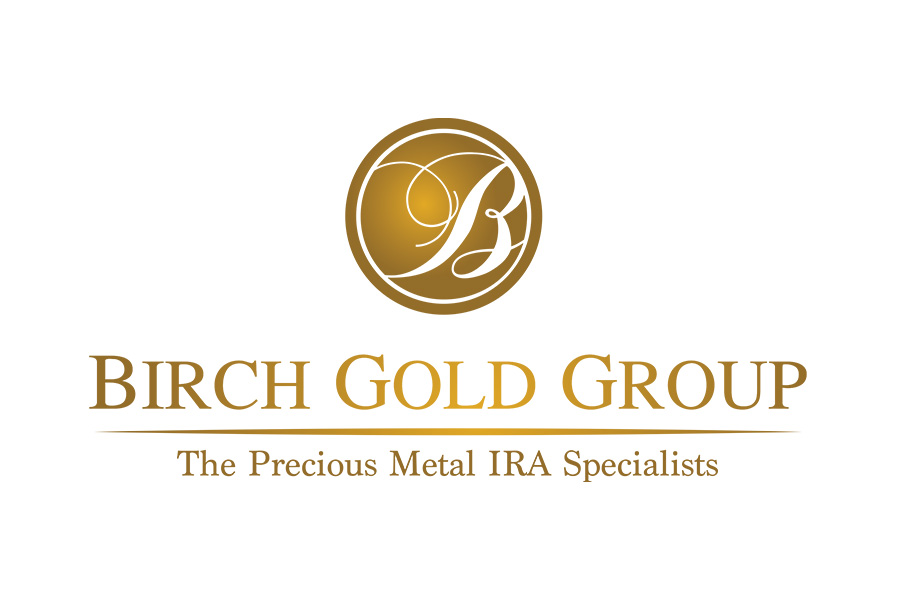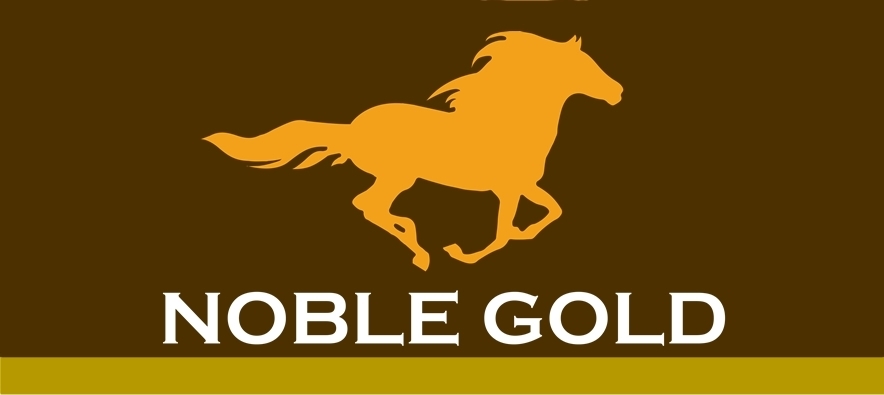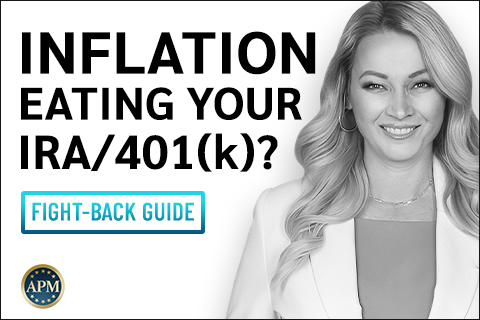Affiliate Disclosure
The owners of this website may be paid to recommend the following companies: Goldco, Augusta Precious Metals, Noble Gold Investments, and Birch Gold Group. The content on this website, including any positive reviews of the mentioned companies, and other reviews, may not be neutral or independent. We do believe in all the companies we recommend as being the most trustworthy in the business.
Introduction to Gold IRA Rollover
In today’s uncertain economic landscape, individuals are increasingly seeking secure and diverse investment options for their retirement savings. One such avenue that has gained significant popularity is the Gold IRA Rollover. This financial strategy allows investors to protect and grow their wealth by transferring funds from existing retirement accounts into a self-directed Individual Retirement Account (IRA) backed by physical gold and other precious metals. In this gold IRA rollover guide, we will explain all and show you the process and how it works.
What is a Gold IRA?
A Gold IRA, also known as a Precious Metals IRA, is a specialized retirement account that holds physical gold and other precious metals as its primary assets. Unlike traditional IRAs, which are often invested in stocks and bonds, a Gold IRA provides a tangible and inflation-resistant hedge against economic uncertainties.

Benefits of Investing in Gold IRAs
Investing in Gold IRAs offers a range of compelling benefits for retirement planning. One of the primary advantages is portfolio diversification. By including physical gold and precious metals in their investment mix, individuals can reduce their exposure to market volatility and currency fluctuations. Gold has historically shown a negative correlation with the stock market, making it an attractive safe-haven asset during economic downturns.
Moreover, gold’s intrinsic value is globally recognized, making it an effective hedge against inflation and currency devaluation. While fiat currencies can lose value over time due to factors like government policies and monetary expansion, gold’s value tends to remain relatively stable, protecting investors from the erosive effects of inflation.
Additionally, Gold IRAs provide an opportunity for potentially higher returns in the precious metals market. The value of gold and other precious metals can appreciate significantly during times of geopolitical instability or financial crises, offering investors a chance to capitalize on market fluctuations and grow their retirement wealth.
Why Consider a Gold IRA Rollover?
Considering a Gold IRA Rollover Guide is a prudent financial move for those looking to secure their retirement savings and diversify their investment portfolio. Preserving retirement savings is a top priority for individuals approaching retirement age, and the uncertainty of traditional financial markets can be a cause for concern. By converting a portion of their existing retirement accounts into physical gold and precious metals, investors can safeguard their wealth and protect it from potential market downturns.
Furthermore, this Gold IRA Rollover Guide presents a unique opportunity for individuals to hold tangible assets within their retirement accounts. Unlike paper assets, such as stocks and bonds, physical gold has intrinsic value and is not dependent on the performance of a company or government entity. This tangible quality offers a sense of security and peace of mind, knowing that a portion of their retirement savings is backed by a valuable and time-tested asset.
The tax advantages of Gold IRAs are another compelling reason to consider a rollover. By moving funds from a traditional retirement account to a self-directed IRA backed by gold, investors can potentially enjoy tax-deferred growth and tax-free withdrawals, depending on the type of IRA they choose. This tax efficiency can lead to substantial savings and enhanced overall returns on investments.
Limited Time offer!
Understanding the Process
Before proceeding with a Gold IRA Rollover, it is essential to gain a comprehensive understanding of the process involved. Several key aspects must be considered to ensure a smooth and successful rollover.
Eligibility Criteria for a Gold IRA Rollover
The first step is to determine whether an individual is eligible for a Gold IRA Rollover. Eligibility criteria may vary depending on the type of retirement account an investor holds, their age, and employment status. Generally, most retirement accounts, such as 401(k)s, Traditional IRAs, and 403(b)s, are eligible for rollover into a Gold IRA.
Types of Retirement Accounts Eligible for Rollover
It is crucial to identify which retirement accounts are eligible for rollover into a Gold IRA. As mentioned earlier, popular retirement accounts, including Traditional IRAs, Roth IRAs, SEP-IRAs, and SIMPLE IRAs, are generally eligible for conversion to Gold IRAs. However, employer-sponsored plans like 401(k)s and 403(b)s may also be eligible, depending on the plan’s provisions and the individual’s employment status.
Choosing a Trustworthy Custodian
Selecting a reputable and trustworthy custodian is one of the most critical aspects of a successful Gold IRA Rollover Guide. Custodians are responsible for holding and safeguarding the physical gold and precious metals on behalf of the investor. Additionally, they handle all administrative tasks related to the IRA, including record-keeping, tax reporting, and ensuring compliance with IRS regulations.
When choosing a custodian, it is essential to consider factors such as their experience in handling precious metals IRAs, their storage facilities’ security measures, and their overall reputation within the industry. Investors should conduct thorough research and carefully assess custodial services before making a decision.

Steps to Execute a Gold IRA Rollover
Executing a Gold IRA Rollover involves a systematic approach to ensure a smooth and seamless process. Here are the key steps to follow:
Step 1: Research and Educate Yourself
Before embarking on a Gold IRA Rollover journey, investors should educate themselves about the intricacies of precious metals investing and the benefits of holding physical gold in their retirement portfolio. Conducting thorough research and seeking information from reliable sources will equip investors with the knowledge needed to make informed decisions.
Step 2: Open a Gold IRA Account
The next step is to open a Gold IRA account with a trusted custodian. Investors can either establish a new self-directed IRA or convert an existing retirement account into a Gold IRA. The custodian will guide investors through the account setup process, ensuring that all necessary paperwork is completed accurately and efficiently.
Step 3: Choose the Right Gold Investment
Selecting the right gold investment is crucial for the success of the Gold IRA Rollover. There are various options available, including gold coins, bars, and bullion. Each has its advantages and considerations, such as liquidity, storage requirements, and premiums over spot prices.
Investors should carefully consider their investment goals, risk tolerance, and storage preferences before making a decision. Consulting with a precious metals expert or financial advisor can provide valuable insights and guidance.
Step 4: Initiate the Rollover Process
Once the Gold IRA account is established, investors can initiate the rollover process with the assistance of their custodian. This involves coordinating with the current retirement account provider to transfer funds from the existing account to the new Gold IRA. The custodian will handle all paperwork and communications with both parties to ensure a seamless transfer.
It is essential to note that rollovers must be completed within a specific timeframe to avoid potential tax consequences. Investors should work closely with their custodian to adhere to IRS guidelines and deadlines.
Our Top Trusted Company Picks for 2025
Our recommended Providers are researched and vetted by us and many top consumer organizations. This is the short list of the most consistent companies we could come up with. Request information from them below.
#1: GoldenCrest Metals *** Best Overall***
Our Rating: 10/10
Key Points
✅ A- BBB Rating
✅ $10,000 Minimum Investment
✅ Excellent Customer Reviews
✅ Transparency and Trust is the Main Focus
✅ All Fees Covered for the First year
✅ An Educational and Long-term Approach to Tailored Precious Metals Strategies
✅ $25,000 in FREE Silver for Qualified Accounts!
#2: Birch Gold Group ***Great Client Education ***
Our Rating: 9.9/10
Key Points
✅ Great company commitment to education and communication
✅ Impeccable customer service
✅ Silver, gold, platinum and palladium available
✅ $10,000 Minimum Investment
#3: Noble Gold Investments ***Best for Rollovers***
Our Rating: 9.9/10
Key Points
✅ One of the best no questions asked buyback programs in the industry
✅ Free delivery of your precious metals to your door at any time
✅ Over 20 years of experience in the precious metals industry
✅ Gold, silver, platinum, and palladium available.
✅ Only Sells Bullion, NO Premium or Collectible Metals
✅ Secure, exclusive storage in the
State of Texas
✅ $20,000 Minimum Investment
Call Noble Gold for your FREE Investing Kit!
1-626-684-4908
Tax Implications of Gold IRA Rollover
Understanding the tax implications of a Gold IRA Rollover is vital to make informed decisions and optimize the overall retirement strategy.
Understanding Tax Advantages
One of the most significant advantages of a Gold IRA is the potential for tax-deferred growth. In a traditional IRA, investments grow tax-deferred until withdrawals are made during retirement. Similarly, within a Gold IRA, any gains realized from the appreciation of gold and precious metals are tax-deferred until distributions are taken.
For Roth Gold IRAs, withdrawals in retirement may be tax-free, provided the account has been open for at least five years, and the account holder is over 59½ years old. This tax-free status can significantly enhance an investor’s overall retirement income.
Tax Reporting and Compliance
Proper tax reporting and compliance are essential aspects of maintaining a Gold IRA. Custodians are responsible for providing investors with the necessary tax forms, such as IRS Form 1099-R, which details distributions from the IRA. Investors must report these distributions on their tax returns accurately.
Potential Tax Pitfalls to Avoid
To maximize the tax benefits of a Gold IRA Rollover, investors should avoid common tax pitfalls. One such pitfall is taking early distributions before reaching the age of 59½. Early withdrawals from an IRA may be subject to additional taxes and penalties. It is crucial to adhere to IRS rules and regulations to prevent unnecessary tax liabilities.
Managing and Diversifying Your Gold IRA
Managing and diversifying a Gold IRA is essential for long-term financial stability and growth. Here are some crucial considerations:
Regular Portfolio Reviews
Regularly reviewing the Gold IRA portfolio is vital to ensure that the investment mix aligns with the investor’s financial goals and risk tolerance. Periodic reviews can identify areas that may need rebalancing or adjustments to optimize returns and risk management.
Balancing Your Portfolio
A well-balanced Gold IRA portfolio should not be overly concentrated in any single asset or investment type. Investors should diversify their holdings, including various precious metals, to spread risk effectively. Additionally, including other non-correlated assets in the overall investment mix can further enhance portfolio stability and growth potential.
Adding Precious Metals to Your IRA
Throughout the investor’s retirement journey, they may wish to continue adding precious metals to their Gold IRA. The process of adding additional metals is straightforward, and it allows investors to take advantage of market opportunities or rebalance their portfolios as needed.
Tips for a Successful Gold IRA Rollover
To ensure a successful Gold IRA Rollover, investors should consider the following tips:
Assessing Risk Tolerance
Understanding one’s risk tolerance is essential for making informed investment decisions. Some investors may be comfortable with a higher allocation of gold and precious metals, while others may prefer a more conservative approach. Evaluating risk tolerance can help achieve a balanced and suitable investment mix.
Market Timing Considerations
While it is difficult to predict short-term market movements, understanding the broader economic landscape can influence investment decisions. Investors may choose to capitalize on favorable market conditions or make strategic adjustments to their portfolio based on economic trends.
Seeking Professional Advice
Investing in precious metals and executing a Gold IRA Rollover is a significant financial decision. Seeking advice from financial advisors or precious metals experts can provide valuable insights and guidance tailored to an investor’s specific financial situation and goals.
Frequently Asked Questions (FAQs)
To address common inquiries related to Gold IRA Rollovers, here are some frequently asked questions:
Yes, individuals can roll over funds from a 401(k) or other employer-sponsored retirement plans into a Gold IRA. This process allows investors to take control of their retirement savings and diversify their portfolio with precious metals.
Yes, partial Gold IRA rollovers are allowed. Investors can choose to transfer only a portion of their existing retirement accounts into a Gold IRA while leaving the remaining funds in the current plan.
Physical gold in a Gold IRA is typically stored in secure and insured depositories or vaults operated by the custodian. These facilities are designed to safeguard the precious metals on behalf of the account holder.
Absolutely! In addition to gold, investors can include other precious metals, such as silver, platinum, and palladium, in their Gold IRA. This diversity can further enhance the portfolio’s stability and growth potential.
In the event of an account holder’s passing, the assets held in the Gold IRA will be transferred to the designated beneficiaries or estate, according to the individual’s estate planning arrangements.
Yes, similar to traditional IRAs, early withdrawals from a Gold IRA before reaching the age of 59½ may be subject to an early withdrawal penalty of 10% in addition to ordinary income taxes.
No, IRS regulations prohibit account holders from personally holding the physical gold within a Gold IRA. The precious metals must be stored by an approved custodian on behalf of the account holder.
The duration of the Gold IRA rollover process may vary depending on several factors, including the complexity of the transfer, the responsiveness of involved parties, and the custodian’s efficiency. In general, the process can take anywhere from a few days to a few weeks.
Yes, there are contribution limits for IRAs, including Gold IRAs. For the tax year 2023, the annual contribution limit for individuals under 50 is $6,000. Investors should consult IRS guidelines to ensure compliance with contribution limits.
Yes, investors can perform a Gold IRA rollover into another precious metal. The IRS allows for a range of precious metals, including gold, silver, platinum, and palladium, to be held in a self-directed IRA.

Conclusion
The Gold IRA Rollover Guide: Step by Step provides a comprehensive overview of the process involved in establishing a Gold IRA and its benefits as a retirement investment strategy. By considering the advantages of investing in precious metals, understanding tax implications, and following a systematic approach to execute a Gold IRA Rollover, investors can secure their financial future and enjoy the peace of mind that comes with holding tangible and valuable assets.
Investors should conduct thorough research, seek professional advice, and carefully evaluate their financial goals and risk tolerance before proceeding with a Gold IRA Rollover. By taking proactive steps and making informed decisions, individuals can navigate the complexities of the financial landscape and build a robust and diversified retirement portfolio that stands the test of time. We hope you have enjoyed this Gold IRA Rollover Guide and wish you the best of luck on your financial journey!














